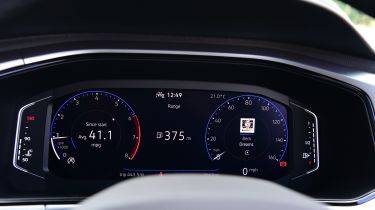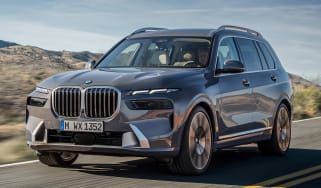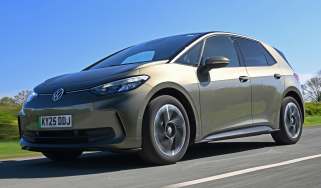Volkswagen T-Roc - MPG, CO2 and running costs
The latest VW petrol and diesel engines are strong all-rounders, offering refinement, performance and decent real-world economy

At the entry point to the Volkswagen T-Roc range, the 113bhp 1.0 TSI petrol engine manages a combined economy figure of 49.7mpg. Remarkably, our favourite 1.5 TSI engine isn’t far behind this at 47.3mpg, helped by its clever cylinder deactivation technology that cuts fuel consumption at a cruise. Add the DSG auto to this engine, and efficiency reduces slightly to 46.8mpg, which is still better than the 187bhp 2.0 TSI 4Motion petrol, which returns a maximum of 38.7mpg. Finally, the 296bhp T-Roc R manages only 33.2mpg, but that’s to be expected from a car designed for performance rather than low-running costs.
The 113bhp 2.0 TDI returns 58.9mpg, while the 148bhp TDI manages 56.5mpg in front-wheel drive form, or 50.6mpg when equipped with 4MOTION four-wheel drive.
Tax
The CO2 emissions for the VW T-Roc range goes from 126g/km for the 113bhp 2.0 TDI diesel, up to 196g/km for the range-topping R model. Our recommended 1.5-litre petrol emits 136g/km, putting it in a 32 per cent Benefit-in-Kind (BiK) tax band, so company car drivers might want to consider one of the all-electric competitors to the T-Roc, because doing so will save you a significant amount of money.
Insurance groups
Insurance groups range from 18 for the 1.0 TSI Life to group 33 for the high-performance R model. The 113bhp 2.0-litre TDI diesel Life version is in group 18, with the top-spec 148bhp R-Line oil burner in group 26.
Depreciation
According to our experts, the VW T-Roc performs a little better than the class average when it comes to depreciation, retaining between 47 to 55 per cent of its resale value after three years or 36,000 miles. That’s on par with the Nissan Juke (also 47 to 55 per cent) and similar to the Renault Captur (52 to 55 per cent).
The high-performance R version will still be worth 53 per cent of its original value after the same period.
To get an accurate valuation for a specific model, check out our valuation tool...








